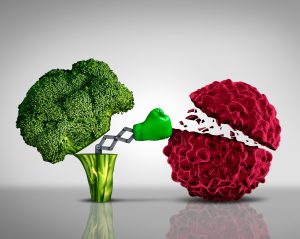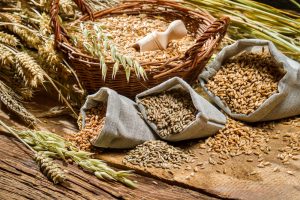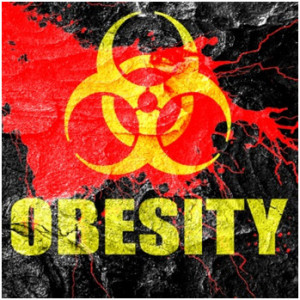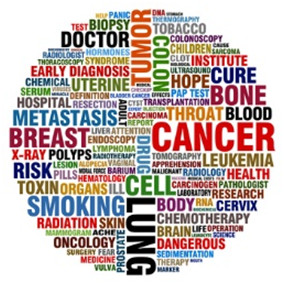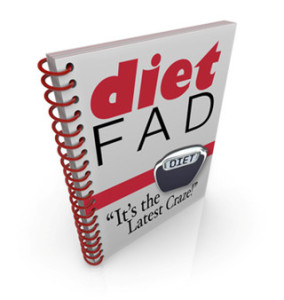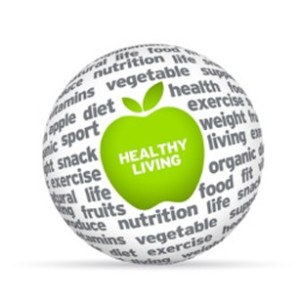What Does The American Cancer Society Say About Reducing Breast Cancer Risk?
Author: Dr. Stephen Chaney
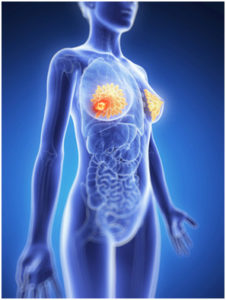 Breast cancer is a scary disease. The American Cancer Society tells us:
Breast cancer is a scary disease. The American Cancer Society tells us:
- 281,000 women will be diagnosed with invasive breast cancer in 2021.
- 43,000 women will die from breast cancer in 2021.
- The good news is that both prevention and treatment of breast cancer have gotten much better:
-
- The 5-year survival rate is 90%.
-
- The 10-year survival rate is 84%.
-
- For women over 50 the death rate has decreased by 1%/year between 2013 and 2018 (mainly due to recognition that hormone replacement therapy is a risk factor for breast cancer).
- The bad news is:
-
- The cost of breast cancer treatment can range from $50,000 to over $180,000.
-
- The side effects of breast cancer treatment can be brutal.
-
-
- For example, there is an effective treatment to prevent breast cancer recurrence for some forms of breast cancer, but many women discontinue the treatment after a few years because of the side effects.
-
So, wouldn’t it be wonderful if there were some simple changes you could make that would dramatically reduce your risk of developing breast cancer in the first place? There are lots of options for reducing your risk of developing breast cancer, but which one(s) should you choose?
- Dr. Strangelove and his friends are only too happy to recommend their favorite potion, food, or diet.
- There are long lists of foods you should avoid if you want to reduce your risk of breast cancer.
- There are also lists of harmful chemicals in cleaners and other household products that you should avoid.
It can become confusing. It can become overwhelming. It would be easy to just throw up your hands and say, “I give up. I don’t know what to do.”
You may be thinking, “Why doesn’t someone simplify things by identifying the top few lifestyle changes that are most effective for reducing my risk of developing breast cancer?”
It turns out someone has. Today I will share two recent studies that have identified the top 6 strategies for reducing your risk of breast cancer, and I have ranked them from 1 to 6 in order of effectiveness.
What Is The Best Way To Reduce Risk Of Breast Cancer?
 The first study (RM Tamimi et al, American Journal of Epidemiology, 184: 884-893, 2016 was designed to identify the major modifiable risk factors for invasive, postmenopausal breast cancer (The term “modifiable risk factors” refers to those risk factors that are under your control.
The first study (RM Tamimi et al, American Journal of Epidemiology, 184: 884-893, 2016 was designed to identify the major modifiable risk factors for invasive, postmenopausal breast cancer (The term “modifiable risk factors” refers to those risk factors that are under your control.
The study utilized data collected from the Nurses’ Health Study between 1980 and 2010. During that time 8,421 cases of invasive breast cancer were diagnosed in 121,700 postmenopausal women in the study. The study looked at the effect of nonmodifiable and modifiable risk factors on the development of invasive breast cancer in these women.
- Nonmodifiable risk factors included current age, age at which menstruation began, height, age of first birth, number of births, weight at age 18, family history of breast cancer, and prior benign breast disease.
- Modifiable risk factors included weight change since age 18, alcohol consumption, physical activity level, breastfeeding, and postmenopausal hormone therapy use.
Here were the results from the study:
- All the risk factors included in this study accounted for 70% of the risk of developing invasive breast cancer in postmenopausal women.
- Modifiable risk factors accounted for 34.6% of the risk of developing invasive breast cancer in postmenopausal women.
When they analyzed the effect of modifiable risk factors on the risk of developing invasive breast cancer separately:
- 44 pounds of weight gain since age 18 increased the risk by 50%.
- Postmenopausal hormone replacement use increased the risk by 35%.
- More than one alcoholic beverage/day increased the risk by 32%.
- Low physical activity increased the risk by 7%.
- Lack of breastfeeding increased the risk by 5%.
What About The Effect Of Diet On Breast Cancer Risk?
 You may be wondering, “What about the effect of a healthy diet on my risk developing invasive breast cancer?” Unfortunately, the study I described above completely disregarded the effect of diet on breast cancer risk.
You may be wondering, “What about the effect of a healthy diet on my risk developing invasive breast cancer?” Unfortunately, the study I described above completely disregarded the effect of diet on breast cancer risk.
However, the second study (MS Farvid et al, International Journal of Cancer, 144: 1496-1510, 2019) I will discuss today partially addresses this issue. It uses the same database as the first study and looks at the effect of fruit and vegetable consumption on the risk of developing invasive breast cancer.
When this study compared high versus low intake of fresh fruits and vegetable on the risk of developing invasive breast cancer:
- Women eating >5.5 servings/day of fruits and vegetables had a 11% lower risk than women consuming ≤2.5 servings/day.
- Women consuming >2.5 servings/day of fruit had a 9% lower risk than women consuming ≤0.5 servings/day.
- Women consuming >4.5 servings/day of vegetables had a 9% lower risk than women consuming ≤0.5 servings/day.
While all fresh fruits and vegetables contributed to this effect:
- The most protective fruits were berries and cantaloupe & melons.
- The most protective vegetables were yams & sweet potatoes, green leafy vegetables (such as kale, mustard greens, and chard), and cruciferous vegetables (such as Brussels sprouts).
The authors concluded, “Our findings support that higher intake of fruits and vegetables, and specifically cruciferous and yellow/orange vegetables, may reduce the risk of breast cancer, especially those that are more likely to be aggressive tumors.”
Now we are ready to answer your question, “Which lifestyle changes are most effective for reducing your risk of developing breast cancer?” If we combine the two studies and rank order the modifiable risk factors, it would look like this.
#1: Minimize weight gain during your adult years.
#2: Don’t use postmenopausal hormone replacement therapy unless absolutely necessary.
#3: Drink little or no alcohol.
#4: Eat a healthy diet with lots of fresh fruits and vegetables.
#5: Be physically active.
#6: Breastfeed when possible.
What Does The American Cancer Society Say About Reducing The Risk Of Breast Cancer?
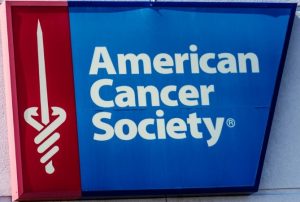 The advice of the American Cancer Society is remarkably similar. Here are their recommendations:
The advice of the American Cancer Society is remarkably similar. Here are their recommendations:
- Get to and stay at a healthy weight.
After menopause, most of your estrogen comes from fat tissue. Having more fat tissue increases the amount of estrogen your body makes, raising your risk of breast cancer. Also, women who are overweight tend to have higher levels of insulin. Higher insulin levels have also been linked to breast cancer.
If you are already at a healthy weight, stay there. If you are carrying extra pounds, try to lose some. Losing even a small amount of weight can also have other health benefits and is a good place to start.
3) Be physically active and avoid time spent sitting.
Current recommendations are to get at least 150-300 minutes of moderate intensity or 75-150 minutes of vigorous intensity activity each week. Getting to or exceeding 300 minutes is ideal.
In addition, you should limit sedentary behavior such as sitting, lying down, watching TV, and other forms of screen-based entertainment. This is especially important if you spend most of your working day sitting.
3) Follow a healthy eating plan.
A healthy eating pattern includes a variety of vegetables, fiber-rich legumes (beans and peas), fruits in a variety of colors, and whole grains. It is best to avoid or limit red and processed meats, sugar-sweetened beverages, highly processed foods, and refined grain products. This will provide you with key nutrients in amounts that help you get to and stay at a healthy weight.
4) It is best not to drink alcohol.
Research has shown that drinking any alcohol increases the risk of breast cancer. If you choose to drink alcohol, the American Cancer Society recommends that women have no more than 1 alcoholic drink on any given day. A drink is 12 ounces of regular beer, 5 ounces of wine, or 1.5 ounces of hard liquor.
5) Think carefully about using hormone replacement therapy.
Studies show that HRT using a combination of estrogen and progestin increases the risk of breast cancer. This combination can also lead to increased breast density making it harder to find breast cancer on mammogram.
Talk with your doctor about all the options to control your menopause symptoms, including the risks and benefits of each. If you decide to try HRT, it is best to use it at the lowest dose that works for you and for as short a time as possible.
The Bottom Line
Breast cancer is a scary disease. The good news is that detection and treatment of breast cancer has improved over the past decade. The bad news is that treatment is expensive, and the side effects can be brutal.
There are lots of options for reducing your risk of developing breast cancer, but which one(s) should you choose?
- Strangelove and his friends are only too happy to recommend their favorite potion, food, or diet.
- There are long lists of foods you should avoid if you want to reduce your risk of breast cancer.
- There are also lists of harmful chemicals in cleaners and other household products that you should avoid.
It can become confusing. It can become overwhelming. It would be easy to just throw up your hands and say, “I give up. I don’t know what to do.”
You may be thinking, “Why doesn’t someone simplify things by identifying the top few lifestyle changes that are most effective for reducing my risk of developing breast cancer?”
It turns out someone has. Today I will share two recent studies that have identified the top 6 strategies for reducing your risk of breast cancer, and I have ranked them from 1 to 6 in order of effectiveness in the article above.
For more details about these studies, my ranking of the top 6 strategies for reducing your risk of breast cancer, and the American Cancer Society recommendations, read the article above.
These statements have not been evaluated by the Food and Drug Administration. This information is not intended to diagnose, treat, cure, or prevent any disease.


